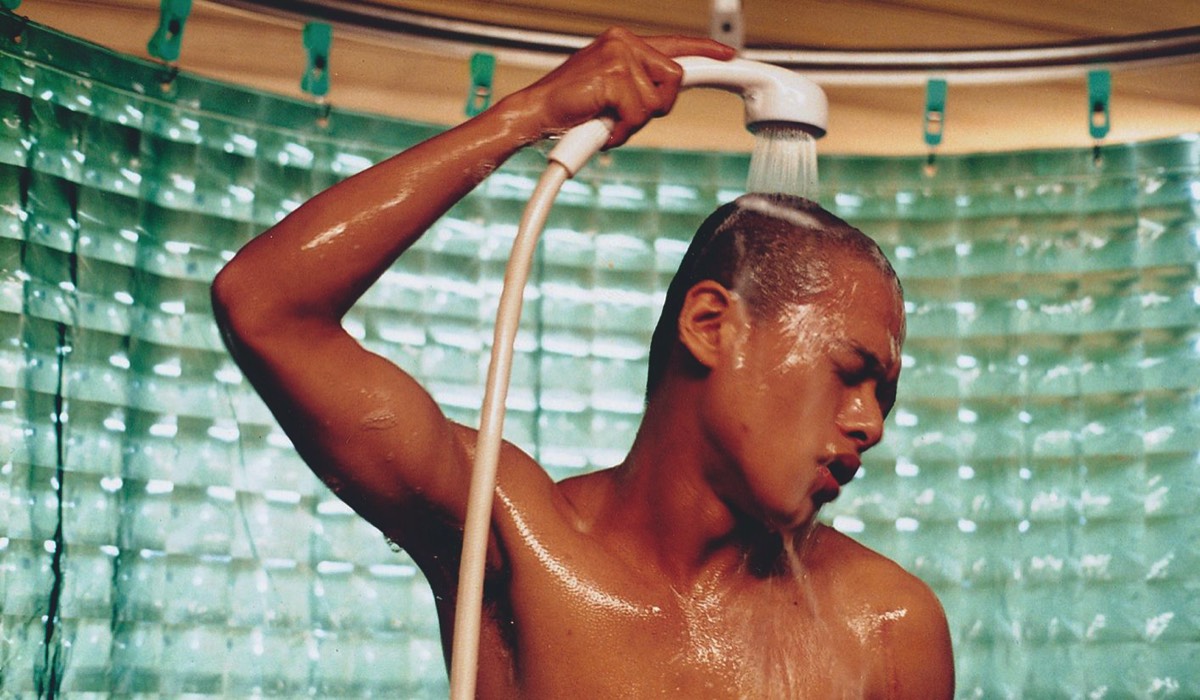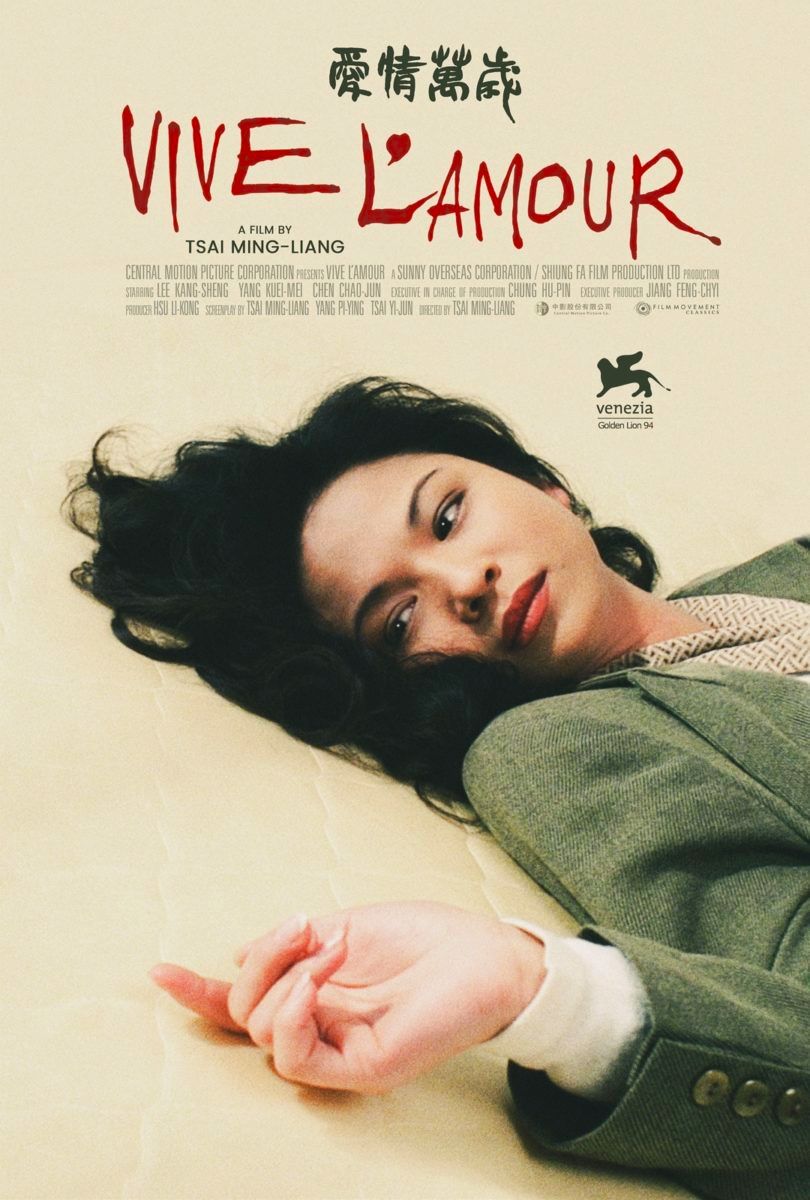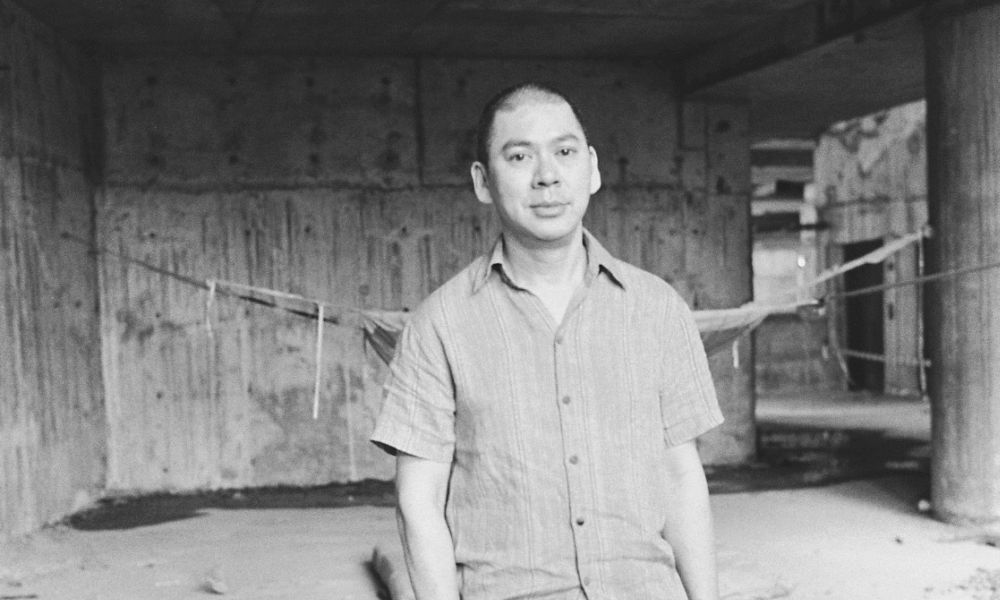"Tsai is a visual artist with a singular, unique vision that does not shy away from critiquing long-established social hierarchies and behavioural codes. His focus on transformation deepens his audience's understanding of the aesthetic, psychological, and cultural impact of his world." - Jay McRoy (501 Movie Directors, 2007)
Tsai Ming-liang
Director / Screenwriter / Cinematographer
(1957- ) Born October 27, Kuching, Sarawak, Malaysia
Top 250 Directors / 21st Century's Top 100 Directors
(1957- ) Born October 27, Kuching, Sarawak, Malaysia
Top 250 Directors / 21st Century's Top 100 Directors
Key Production Countries: Taiwan, France
Key Genres: Drama, Urban Drama, Comedy Drama, Psychological Drama, Erotic Drama, Avant-garde/Experimental
Key Collaborators: Lee Kang-sheng (Leading Actor), Liao Pen-jung (Cinematographer), Chen Shiang-chyi (Leading Actress), Lu Yi-Ching (Leading Character Actress), Chen Chao-Jung (Leading Character Actor), Yang Kuei-Mei (Leading Character Actress), Chen Sheng-Chang (Editor), Miao Tien (Leading Character Actor), Yang Pi-ying (Screenwriter), Vincent Wang (Producer), Lei Chen-Ching (Editor), Hsu Li-Kong (Producer)
Key Genres: Drama, Urban Drama, Comedy Drama, Psychological Drama, Erotic Drama, Avant-garde/Experimental
Key Collaborators: Lee Kang-sheng (Leading Actor), Liao Pen-jung (Cinematographer), Chen Shiang-chyi (Leading Actress), Lu Yi-Ching (Leading Character Actress), Chen Chao-Jung (Leading Character Actor), Yang Kuei-Mei (Leading Character Actress), Chen Sheng-Chang (Editor), Miao Tien (Leading Character Actor), Yang Pi-ying (Screenwriter), Vincent Wang (Producer), Lei Chen-Ching (Editor), Hsu Li-Kong (Producer)
"One of the major names in New Taiwanese Cinema, along with Hou Hsiao-hsien and Edward Yang, Tsai Ming-liang specializes in static depictions of urban alienation featuring minimal dialogue, long fixed shots and sudden bursts of surreal humor courtesy of impassive actor Lee Kang-sheng, who has appeared in all of the director's features." - Andrew Bailey (Cinema Now, 2007)
"Alongside Edward Yang and Hou Hsiao-hsien, Tsai Ming-liang has propelled Taiwanese film to the front ranks of arthouse cinema with his Hou Hsiao-hsien-contained plot-averse brand of auteur filmmaking. All of his films inhabit a world of contemporary urban angst and disconnection. They are not easy on the viewer - but they are not meant to be - and their moods can be hard to pin down. And although renowned for their difficult and sometimes harrowing subjects and slow fly-on-the-wall pacing (often unpunctuated by dialogue), some of Tsai's films have included musical numbers and been characterized as "sweet", rather than miserablist." - Richard Craig (The Rough Guide to Film, 2007)

The River (1997)
"Tsai films silent people — strangers or neglected family members — who maintain one another in a common space. People are engrossed in their own tasks, yet somehow "supported" by the actions of others — for instance, a neighbor at the end of the hall. The characters may be deadpan, but we see the degree of comfort or inhibition they get from each other." - Lesley Chow (Bright Lights Film Journal, 2006)
"Along with Edward Yang and Hou Hsiao-hsien, Tsai Ming-liang became one of Taiwan's most prominent directors during the 1990s. His films regularly appeared in festivals around the globe and he received lavish praise from film critics worldwide. Born in Malaysia in 1957, Tsai moved to Taiwan 20 years later and graduated from the Chinese Cultural University in 1982. For the next ten years, he supported himself by working in theater and writing screenplays for films and television." - Tom Vick (Allmovie)
"Even by the standards of his New Taiwanese Cinema contemporaries, Hou Hsiao-hsien and Edward Yang, Tsai’s films are, as some would say, deliberately paced. Cutting together long takes, often of static medium and long shots, he unabashedly requires each viewer to slow down and patiently experience another’s life, thereby avoiding the dictatorial imposition of classical continuity editing that would lead inevitably, in the words of Andrei Tarkovsky, to “a facile interpretation of life’s complexities.” Instead, Tsai’s camera lingers near his subjects in an almost documentary fashion, observing their behavior with relative objectivity, just as the director himself came of age freely observing and admiring the slow movements of Malaysian life." - Darren Hughes (Senses of Cinema, 2003)
"With the exception of Apichatpong Weerasethakul, the Malaysian-Taiwanese director Tsai Ming-liang is likely the most famous active filmmaker within the loose style known as slow cinema. Renowned for his static long takes, minimal dialogue, and the obscure and unpredictable nature of his pacing and narratives, Tsai operates at an extreme end of the general cinephilic consciousness. He has been a beloved figure for decades without once sacrificing the rigour of his filmmaking, constantly pushing the boundaries of cinema’s capacity for duration and stasis." - Ryan Swen (BFI, 2024)
"Like many of the most innovative directors, Tsai is a rebel soul. His subjects are almost exclusively outsiders, be they petty criminals, watch-sellers or porn stars of the sort that may haunt any of our cities. Tsai observes them, with a tough, almost invasive compassion – he's not a director to avoid a confrontation with truth, but neither is he immune to life's ironies, or the sweet seductions of a song. He's Western-friendly, too – a flag-bearer for the stylistic breakthroughs of the French New Wave, for instance. But despite that, his profile in the West – and in Britain – has remained discreet, his work hard to obtain, and you'll find few if any books dedicated to him." - Wally Hammond (Time Out)
"Looking back at a lot of the films I’ve made in the past, I think I was full of energy. I was very, very young, very, very motivated. As I’ve aged, I’ve realized that I just don’t want to be bothered by the complexities and details of the conventional ways in which I used to make films. Taking care of every single detail of the production, having very structured scripts and films… that’s just not something I want to do now. So now I tend to gravitate toward things that are looser in terms of structure and narrative. I just want to make films that are not as complicated.as remained discreet, his work hard to obtain, and you'll find few if any books dedicated to him." - Tsai Ming-liang (Film Comment, 2021)
Selected Filmography
{{row.titlelong}}
GF Greatest Films ranking (★ Top 1000 ● Top 2500)
21C 21st Century ranking (☆ Top 1000)
T TSPDT R Jonathan Rosenbaum
21C 21st Century ranking (☆ Top 1000)
T TSPDT R Jonathan Rosenbaum
Tsai Ming-liang / Favourite Films
L'Eclisse (1962) Michelangelo Antonioni, Fear Eats the Soul (1974) Rainer Werner Fassbinder, The 400 Blows (1959) François Truffaut, Goodbye, Dragon Inn (2003) Tsai Ming-liang, Mouchette (1967) Robert Bresson, The Night of the Hunter (1955) Charles Laughton, The Only Son (1936) Yasujiro Ozu, The Passion of Joan of Arc (1928) Carl Theodor Dreyer, Spring in a Small Town (1948) Fei Mu, Sunrise (1927) F.W. Murnau.
Source: Sight & Sound (2022)
L'Eclisse (1962) Michelangelo Antonioni, Fear Eats the Soul (1974) Rainer Werner Fassbinder, The 400 Blows (1959) François Truffaut, Goodbye, Dragon Inn (2003) Tsai Ming-liang, Mouchette (1967) Robert Bresson, The Night of the Hunter (1955) Charles Laughton, The Only Son (1936) Yasujiro Ozu, The Passion of Joan of Arc (1928) Carl Theodor Dreyer, Spring in a Small Town (1948) Fei Mu, Sunrise (1927) F.W. Murnau.
Source: Sight & Sound (2022)
Tsai Ming-liang / Fan Club
Apichatpong Weerasethakul, Adrian Martin, Dan Sallitt, Ryan Swen, José Sarmiento, Dennis Lim, Neil Young, Filipe Furtado, Adam Cook, Julian Ross, Cristina Nord, Peter Rist.
Apichatpong Weerasethakul, Adrian Martin, Dan Sallitt, Ryan Swen, José Sarmiento, Dennis Lim, Neil Young, Filipe Furtado, Adam Cook, Julian Ross, Cristina Nord, Peter Rist.
"Fan Club"
These film critics/filmmakers have, on multiple occasions, selected this director’s work within film ballots/lists that they have submitted.
These film critics/filmmakers have, on multiple occasions, selected this director’s work within film ballots/lists that they have submitted.


